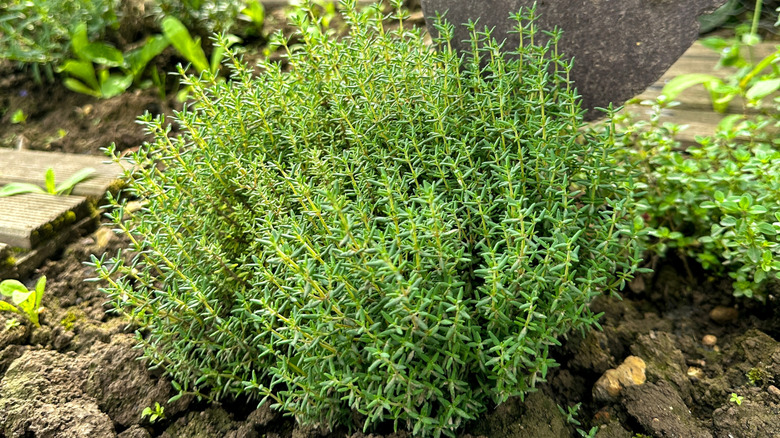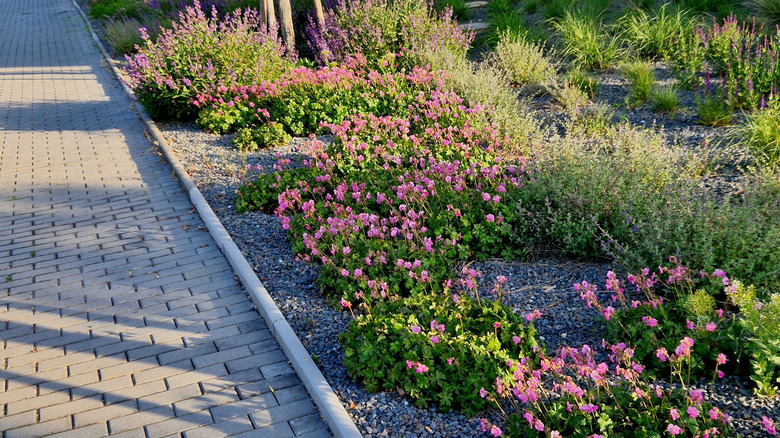Growing Thyme? Here's Why You Should Consider Adding Gravel To The Soil
If you're growing thyme in your garden, you'll know that it's a wonderful fragrant herb that fills the air with its delicious aroma whenever you brush past the leaves. You'll also understand that this aromatic Mediterranean plant appreciates excellent drainage and lots of bright sunshine to help develop the essential oils that give the leaves their spicy flavor and intoxicating fragrance. This is precisely why you should consider adding gravel to the soil to ensure you're providing the right environment for your thyme to thrive, such as good drainage and extra warmth. There are plenty of ways you can use gravel in your yard, and helping improve the drainage for your Mediterranean herbs such as thyme is just one of them.
Essentially, thyme (Thymus vulgaris) grows best in soils that are sandy or rocky and relatively dry. Above all, this plant requires optimum drainage to prevent problems like root rot. Therefore, if you have clay soil, your thyme will struggle to grow as well as it could. In this instance, it's a good idea to amend the soil in your herb garden with a couple of inches of pea gravel by working this into the clay down to a depth of around 8 to 12 inches. This will break up the tightly held clay particles and improve drainage to a greater extent. Apart from thyme and other sun-loving herbs, there are plenty of other beautiful plants that grow well in gravel gardens, such as ornamental onions and prairie grasses.
Mulching your thyme with gravel is also a good idea
Apart from amending heavier clay soils with gravel to keep your thyme happy, it's also good practice to use limestone gravel as a mulch around your plants. Not only will this aid in excellent drainage but it will also help to reflect the heat from the sun and give your plants the warm environment that they prefer. This is particularly important if you garden in a climate that allows you to grow thyme year-round (USDA hardiness zones 5 through 9) because the plant will certainly enjoy the extra blanket of warmth that a gravel mulch can provide.
Using gravel as mulch around your thyme plants rather than other types of organic materials helps to keep excessive moisture away from the base of the plants, thus reducing the risk of stem rot. The limestone gravel will also assist in keeping the soil on the more alkaline side, which is exactly what thyme plants love. As a bonus, this layer of gravel should help to suppress weeds as well. You can use a similar practice when growing other types of Mediterranean herbs such as lavender and rosemary, which is why thyme and lavender are natural companions in the garden.

